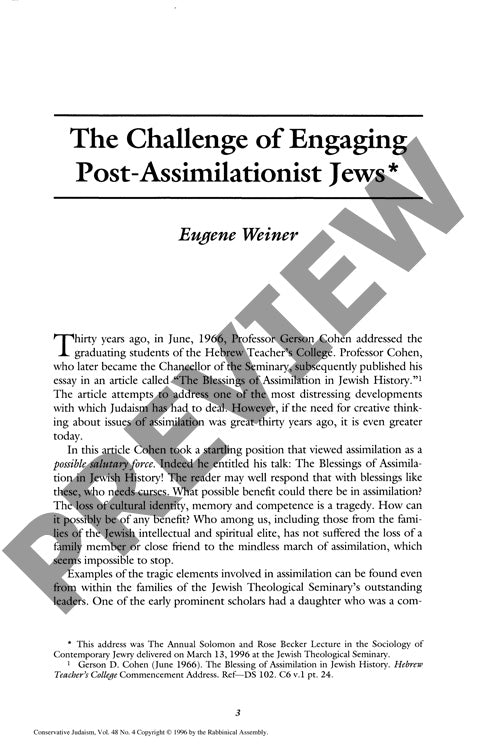The Challenge of Engaging Post Assimilat
Couldn't load pickup availability
For centuries, Jewish communities have grappled with assimilation as an existential threat, yet Gerson Cohen's groundbreaking 1966 work "The Blessings of Assimilation in Jewish History" proposed a radical alternative: that assimilation could serve as a catalyst for Jewish renewal. Through historical analysis and institutional case studies, particularly focusing on New York City's B'nai Jeshurun synagogue, this research explores how post-assimilationist Judaism can thrive by embracaging rather than resisting cultural adaptation. Three major assimilating forces have shaped modern Judaism: secular nationalism in Israel, coercive socialist ideology in the former Soviet Union, and the ethos of pluralistic open society in the United States. As these forces have largely run their course, new opportunities for Jewish engagement have emerged. The B'nai Jeshurun case study reveals how institutions can successfully engage assimilated Jews through innovative approaches that incorporate contemporary cultural elements while maintaining Jewish identity. The findings demonstrate that post-assimilationist Judaism requires active engagement with the contemporary world rather than insular preservation strategies, suggesting that "healthy assimilation" can revitalize Jewish communities by creating relevant, accessible pathways for Jews seeking to reconnect with their heritage while addressing modern concerns and values.

More Information
-
Physical Description
-
Publication Information
Published 1996
ISBN
-
Publication Credits
Eugene Weiner

